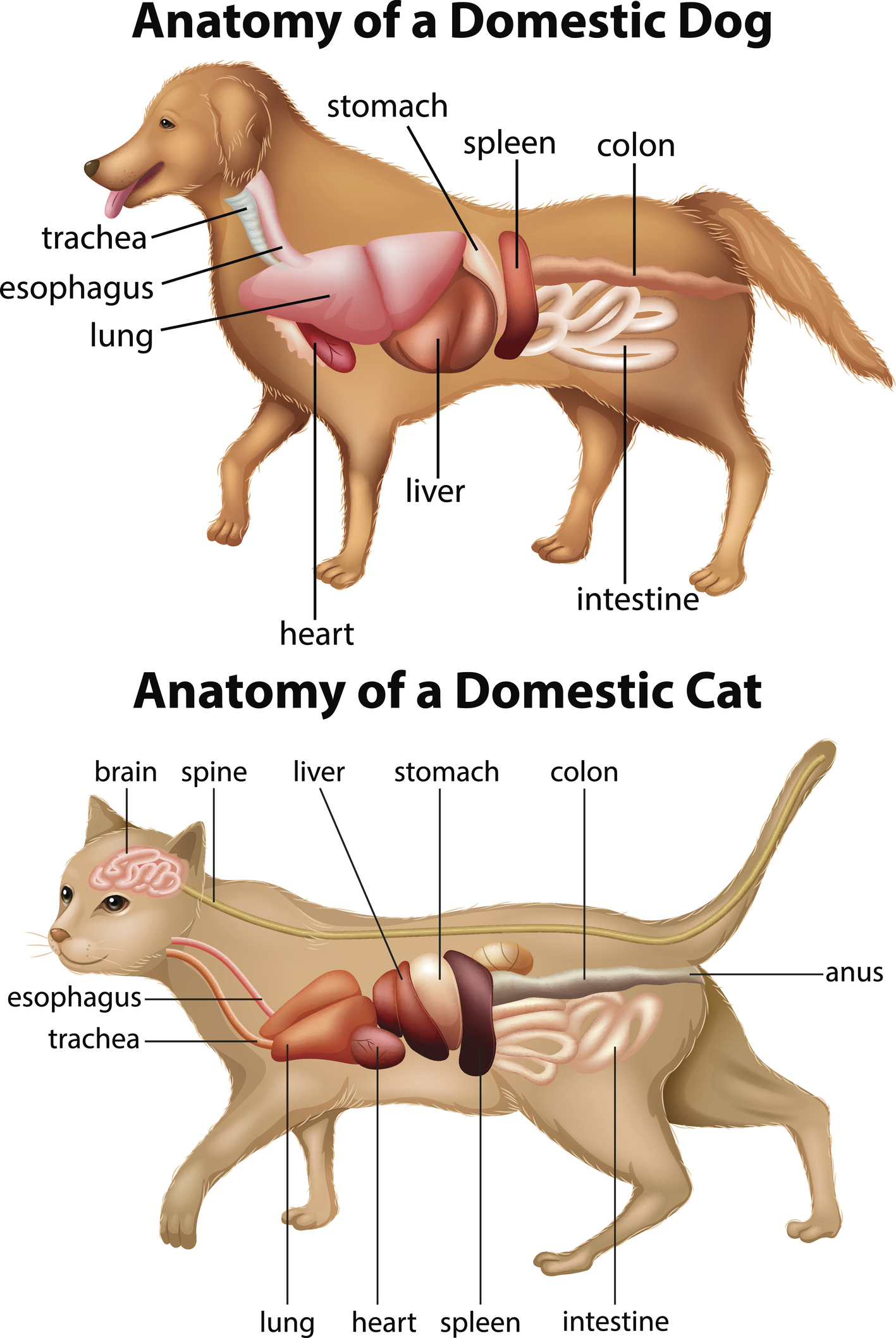National Scoop the Poop Week | Unlocking the digestive tract
Published on April 28, 2025
Brace yourselves, folks! National Scoop the Poop Week kicks off April 23 to 29, just following Earth Day And reminding us all to play doggy doo detective!
We figured it’s the perfect time to dive into the fascinating world of feces and how different types can be a window into dietary health.

Unlocking the mysteries of our fur-Babies' tummy tunnels!
Dogs and cats have shorter digestive tracts and more acidic stomachs compared to humans and herbivores. This unique anatomy allows them to effectively break down animal proteins while minimizing the risk of foodborne illnesses.
The digestive tract includes essential organs to break down food. The esophagus pushes food to the stomach, which secretes acid and enzymes needed for digestion. The small intestine is for digestion and absorption of nutrients. Whereas the large intestine absorbs water as needed and stores feces waiting passage.
The exploration of anatomy can deepen our understanding of dietary needs. As omnivores, humans have longer intestines, which help with the absorption of nutrients from a diverse range of foods.
In comparison, dogs and cats, as carnivores, have shorter intestines that allow them to effectively digest protein-rich diets.
Proteins from animals are generally absorbed more readily than those from plants. This is due in part to the fibrous coverings that protect plants from pests and diseases, which can also slow down the digestion process.

Unlocking the mysteries of digestion is shedding light on the diversity of the gut's microbiome and the vital role that the delicate balance of microorganisms plays in overall health and immunity.
Who would have imagined that exploring the topic of poop could be so intriguing? 🐕🦺💩
Ooh, that smell. Can't you smell that smell?
The odor of feces can be quite strong and noticeable; however, a dog or cat on a raw diet can produce stools that have virtually no smell.
Maintaining digestive health -
The odors of stool can provide important clues about digestive health and overall wellness. Although it may not be a pleasant subject, different smells can signal potential concerns. Keeping an eye on stool odors, particularly alongside other symptoms, is essential for holistic support and maintaining digestive health.
Smell insights -
👃Foul or unusual smells may suggest a dietary imbalance or gastrointestinal infection.
🥚Sulfur-like or rotten egg odors could indicate excessive protein breakdown or malabsorption.
🍎Sweet or fruity smells might signify undigested sugars or carbohydrates fermenting.
How poop might crack the mystery of dietary health!
Observing stool can reveal important health insights in people and in our animals. Analyzing color, consistency, and frequency can indicate dietary habits, digestive health, and possible medical issues.
Analyzing color -
🤎 Dark brown stools may indicate red meat consumption.
🩸 Black stools can result from meals high in blood, leading to oxidation in the colon.
🦴 White, chalky stools suggest excess bone in the diet
Consistency -
Keeping an eye on stool consistency can clue you in on diet tweaks or health hiccups. Got loose stools? It might be time to ease up on the fatty meats and amp up the fiber, or maybe play around with your meat, bone, and organ ratios.
On the flip side, if your stools are rock stars (literally), it’s a sign to up hydration, dial down on the bones, and pack in those fiber-rich goodies. Tuning into these signals can enhance overall health.
Stool frequency -
Healthy stool frequency ranges between 1-3 times daily. To keep things running smoothly, offer a species appropriate diet, focus on hydration, and keep your furry friends moving with a regular exercise!
How to improve our furry friend’s digestive health.
Carefully reading labels helps in making informed food choices. Avoid unnecessary ingredients like wheat, corn, and soy. Focus on meat, not meat meal. Meat meals are rendered and contain very little to no nutritional value. Also, choosing minimally processed products supports digestive health. Staying hydrated and including diverse food options further enhances digestion.
Small changes can have a significant impact, so start with one adjustment at a time and pay attention to stool as a guide.
Have you ever come across the old wives' tale regarding bone broth? Bone broth is said to enhance immunity and aid with gut healing! However, keep in mind that healing the gut requires patience, and adopting a holistic approach can be quite beneficial.
Leave no traces behind.
Cleaning up pet waste can safeguard public health and the environment. Additionally, it can save a lot of annoyance, as anyone who has stepped in a mess can attest. By picking up poop, we prevent harmful bacteria, viruses, and parasites from polluting soil and water, leading to cleaner and safer areas for both people and animals.

Which animal produces the best droppings for nourishing nature?
Chicken manure ranks highest in terms of nutritional value, primarily due to its elevated nitrogen content, which is crucial for plant growth. Furthermore, its dry composition aids in balancing moisture levels within the soil.
Following closely is cow manure, renowned for its rich organic matter and essential minerals, which enhance soil structure and improve water retention.
Lastly, rabbit manure, often referred to as "cold" manure, can be applied directly to the garden without the need for composting. It is also abundant in nutrients, making it an effective fertilizer choice.
Embracing natural fertilizers is like giving your crops a loving hug from Mother Nature herself! steer clear of chemical fertilizers whenever you can. Let’s celebrate the benefits of scooping poop!




